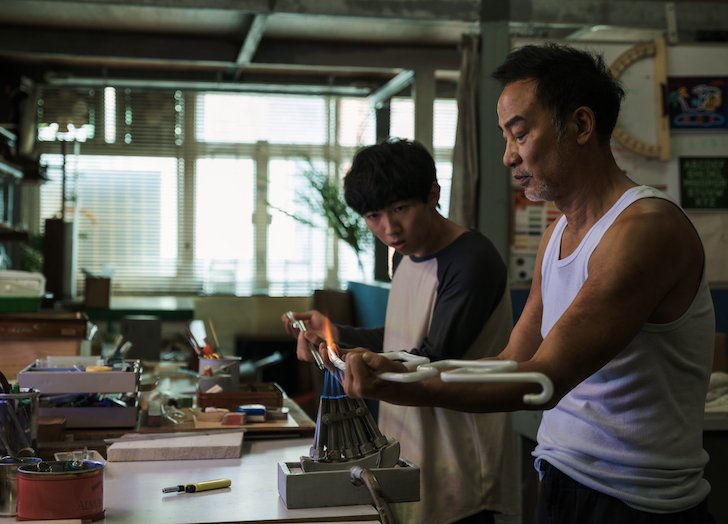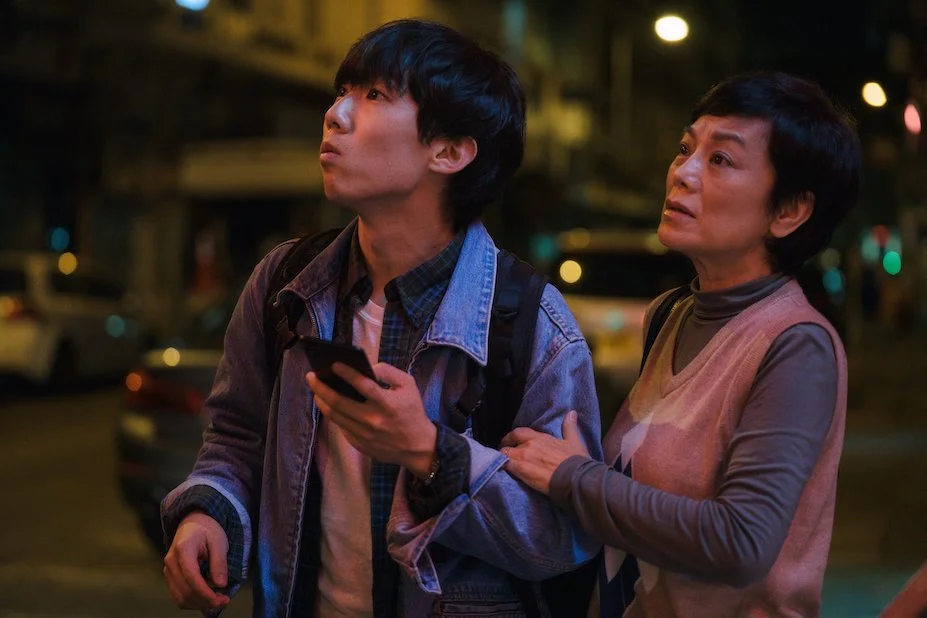Lights Out
Anastasia Tsang’s debut is more than just a paean to Hong Kong’s neon heritage. It’s a metaphor for being switched back on.
A LIght Never Goes Out
Director: Anastasia Tsang • Writer: Anastasia Tsang, Tsoi So-man
Starring: Sylvia Chang, Henick Chou, Simon Yam, Cecilia Choi, Alma Kwok, Jacky Tong, Mak Chau-shing, Ben Yuen
Hong Kong • 1hr 42mins
Opens Hong Kong April 13 • IIB
Grade: B-
Whether by design or due to the march of so-called progress, we all know the bright neon signs that lined Nathan Road are, mostly, gone. Ditto for their garish, skeevy counterparts in Wan Chai and the office towers sandwiching the harbour and which graced covers of Lonely Planet among others for decades. All that neon was something that was uniquely Hong Kong, and when the neon started vanishing by government decree around 2015, it took a little bit of the city’s soul with it. Seriously, stand at the foot of Nathan, outside the Cultural Centre, now and look up the street. It’s a shadow of its former self.
Which is part of what first-time feature director Anastasia Tsang Hin-ling ponders in A Light Never Goes Out | 燈火闌珊, an imperfect but well-intentioned drama about a grieving widow, Mei-heung (Sylvia Chang Ai-chia), who starts a private mission to complete her neon sign-building husband Bill’s (Simon Yam Tat-wah) last commission. Tsang and co-writer Tsoi So-man’s delicately feminist metaphor about loss, grief, identity and memory is downbeat but not depressing (though Tsang has pointed out preview screenings have seen their fair share of damp hankies), and ends on a note of rebirth – for both Mei-heung, neon lights and the SAR itself.
The story starts with Mei-heung rifling through a donation box where her daughter Rainbow (Cecilia Choi Si-wan, Beyond the Dream) has dumped some of Bill’s old clothes. Mei-heung’s not having it, and she’s trying desperately to hold on to her dead husband. To that end she heads to his neon studio to sort things out and finds not just plans for one last sign but an apprentice: Leo (Henick Chou Hon-ning). Leo himself is at something of a dead end. His master is gone, he didn’t finish his training, he has no home – he’s crashing in the workshop – and probably no job. Mei-heung gives him some direction by enlisting his help with Bill’s mysterious final project.
While this is going on, Rainbow is making plans to emigrate to Australia with her fiancé Roy (Mak Chau-shing) while “dealing” with Mei-heung’s refusal to reconcile Bill’s death and her sudden interest in Leo, who Rainbow doesn’t trust. As they all dig deeper into Bill’s last job and his legacy, which unearths another woman, Mei-heung reflects on their life together (Alma Kwok and Jacky Tong play the younger Mei-heung and Bill in flashbacks), her identity as a wife and mother, seemingly coming to an end, simultaneously reflecting the end of an era in Hong Kong and the loss of its defining visual aesthetic. Cinematographer Leung Ming-kai (Suk Suk) doesn’t get fancy in capturing the hazy glow of the light, letting it seep into its surroundings to give the spaces an after-worldly sheen perfect for the limbo the characters and the city live in.
There are plenty of ideas floating in the ether of A Light Never Goes Out: Tsang and Tsoi touch lightly on the wave of emigration sweeping the city, the systematic – bureaucratic? – elimination of heritage and culture, their impact on identity and ultimately, perhaps, the transformation that results from all this change, because that’s what A Light is really about underneath its multiple narrative layers. Mei-heung and the city are one in the same, and the progress, prosperity and joy we see in her past, followed by gradually increasing uncertainty about her place in the world as she bleeds family is a mirror on Hong Kong’s path over the past couple of generations. Neon is the symbol that ties them together. It’s all very thought-provoking and dignified – Chang, of course, can deliver steely emotionalism in her sleep – but Tsang’s penchant for inference and suggestion keep the film from ever really making a statement, which it seems to want to on occasion (but it got FFFI funding, so…).
Tsang’s aim may have simply been one of quiet contemplation; everyone and everything is in flux in A Light Never Goes Out, and that flux is something to consider in itself. Where does Mei-heung go next? Where does the city go? As retro-ism gains traction and Hongkongers actively seek to reclaim their singular heritage, is neon destined to go the way of the dinosaur or be remade into something else? Mei-heung ends her story in a better place than she started it and the film ends on a relatively happy note that places value on personal and collective memory. How resigned you are to the march of time, the inevitability of change, death and rebirth will determine how many tissues to bring. — DEK



